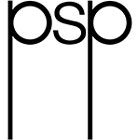On Thursday 26th September 2013 one of Australia’s most admired poets, Stephen Edgar, launched the most recent Pitt Street Poetry book: Chains of Snow, a first collection from Sydney poet Jakob Ziguras. The launch was held at the University of Notre Dame in Broadway, where Jakob teaches philosophy.
This young poet came to us strongly recommended by several influential poets and poetry arbiters in Australia and abroad. That in itself, while important, is not sufficient for a green light: in the end we must back our own judgment. After reading a few pages it was clear that he could publish with any Australian or international publisher, and we hoped he would choose us.
In our eyes, Chains of Snow promises to become a classic. We believe it will be welcomed warmly, cherished, and that Jakob Ziguras will become a major figure on the national and international poetry landscape. In the present context of this blog, could we perhaps use it as an object lesson in what, in our eyes at least, makes a poetry manuscript demand publication?
By way of example let’s look at the first poem in the collection, ‘Orpheus Turns’. If you don’t have the book to hand, you can read it here, and even, if you like, listen to the poet reading it out loud by clicking on the media link at the bottom of the page.
First and most important, it has something to say, something well worth saying. This poem is positioned perfectly at the beginning of the collection. It concerns the nature of the choices which face a poet: not least the particular choice to write (or read, or even publish) a new poetry book. And then by extension it’s about the choices which face us all, in art and in life. So it’s personal but also universal.
It draws on the Orpheus myth of course. A bold connection for a new poet, even one who is half Greek. These days we most commonly encounter Orpheus down on the harbour, at the Opera Theatre, wandering the underworld in his unsuccessful quest for Euridyce, poignantly for Gluck, riotously for Offenbach. But we shouldn’t need reminding that he was revered by the ancient Greeks as the greatest of poets, able to charm all living things with his verse and songs. By pretending to follow in the footsteps of Orpheus this young poet demonstrates a breathtaking assurance in his opening piece, just putting it out there.
Yet the first phrases are not abstract or philosophical but personal, even romantic. There is an immediate connection.
While I sit writing, just a fragrant trace
Confirms your presence.
Second, the poetry is timeless, lyrical and beautiful. Phrase making is part of this equation, so is the memorable image, the arresting opening, the elegantly contrived denouement. But the whole is invariably more than the sum of the parts.
I know perfection is a chance effect
Of uninflected being, that to reflect
Will break the mirror that preserves your face . . .
Thirdly there is a unique and recognisable voice. Consider the modern pantheon: Whitman, Pound, Yeats, Auden, Eliot, Bishop, Larkin, Plath, Hughes, Berryman. Serve up any three lines and chances are you could spot the poet. This principal applies here: the quiet shout out to Heraclitus in the penultimate line of this poem is a signature trope:
Perhaps that other Greek was speaking sense:
‘The upward and the downward path are one.’
Finally and of equal importance, this poem demonstrates a deep understanding of the complex traditions, rules and folklore of English language poetry. By modelling ‘Orpheus Turns’ on the famous ‘Double Sonnet’ of the American master Anthony Hecht, Ziguras lays claim to membership of a craft heritage of profundity and transgression within a mastery of traditional forms. Fans of prosody will enjoy the metre and the rhyming schemes in this poem, but while these aspects will certainly appeal to the poetry cognoscenti, the average reader needs no esoteric knowledge to appreciate the work – its lively voice and freshness of touch transcend the formal constraints, as the best poetry must, and speak immediately to the reader.
We have published five poems from Chains of Snow on this website, each quite different in tone and subject matter, and each accompanied by an audio file. We encourage you to get to know them and to share our enthusiasm for this welcome newcomer to the ranks of major Australian poets.

1 Comment
Comments are closed.